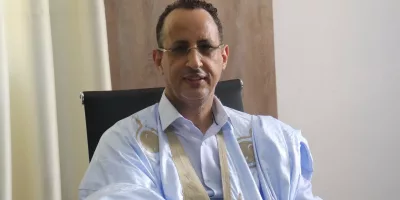The phenomenon of enforced disappearance in Egypt is no longer confined to cases that are documented or verified, the Committee for Justice (CFJ) said. Enforced disappearance has become a systematic and continuous policy used by authorities in Egypt to suppress its opponents from across the political spectrum.
CFJ said that on the occasion of the International Day of Victims of Enforced Disappearances, marked on August 30 of each year, it will shed light on the policy of enforced disappearance pursued by Egyptian authorities, which is one of the most serious and prominent violations practiced against detainees in Egypt, especially those with a political background. Egypt has not yet acceded to the International Convention for the Protection of All Persons from Enforced Disappearance, issued in December 2006.
The Executive Director of CFJ Ahmed Mefreh, said:
“Most reports issued by the United Nations regarding Egypt, and even the reports issued by the foreign ministries of countries allied to the regime in Egypt regarding freedoms, are not devoid of mentioning enforced disappearance as a phenomenon that has spread in Egypt, turning into a systematic policy by the Egyptian security services to deal with the political opposition, with the aim of suppressing it away from the sight and control of the law.”
During 2020, within the framework of its Detention Watch project, CFJ documented 1917 cases of enforced disappearance, 155 of which were verified. The month of September, which witnessed demonstrations against the regime in Egypt, topped a list of violations, representing approximately 23 per cent of the total violations (451/1917), emphasizing Egypt’s use of enforced disappearance as a means to conceal violations against political opponents.
The organization also documented, during the first half of 2021 (January-June) only, 807 cases of enforced disappearance, of which 114 were actually verified.
CFJ added that enforced disappearance was one of the most prominent violations that it reported since the start of its Detention Watch project to monitor places of detention in Egypt, noting that the problem with enforced disappearance does not only affect its victims, but society as a whole.
CFJ said that the families of the forcibly disappeared live in a state of constant anxiety and tension over the fate of their disappeared relatives, as well as members of the community themselves who lose confidence in the law that is supposed to protect their personal freedoms, which threatens peace and community security as a whole. In addition, when jurists turn from a tool to implement and maintain the law to a tool to break it, society as a whole turns into a state of lawlessness.
CFJ also indicated that enforced disappearance has become a weapon in the hands of Egyptian authorities, which they use against their political opponents, in clear and explicit violation of all international norms and laws. It has become a norm that enforced disappearances of politicians are documented almost daily, the most famous of which was the case of the dentist and the former head of the Justice Party, Mustafa el-Naggar, who has been missing since September 27, 2018, until this moment, amid continuous calls on the Egyptian authorities to reveal his fate, but to no avail. Another example is the case of the human rights activist and one of the founders of the Union of the Families of the Forcibly Disappeared, Ahmed Amasha, who was forcibly disappeared twice in 2017 and 2020. During his period of enforced disappearance, Amasha was subjected to torture and inhumane detention conditions. He still languishes in Tora Maximum Security Prison (Aqrab), amid UN calls to release him.
CFJ also pointed out that enforced disappearance, as a violation, is linked to a number of other violations, the most important of which is “recycling cases” or “renewed detention”, which means that the detainee obtains a release decision in connection to a case for which he is detained, provided that the release procedures are not applied, with the detainee forcibly hidden in one of the security headquarters for a period ranging from several days to weeks and perhaps months in some cases, and then the same detainee is added in another case, maybe on the same charges he was being held on, to be legally remanded in custody on that other case.
CFJ called on the authorities in Egypt to stop the policy of enforced disappearance against their opponents and called on them to immediately join the International Convention for the Protection of All Persons from Enforced Disappearance, as well as to amend the Egyptian constitutional and legal framework to explicitly criminalize enforced disappearance and punish its perpetrators, to prevent their impunity.
The organization also called on the international community and various United Nations mechanisms to pressure the Egyptian authorities to respond to these previous international demands and calls for enforced disappearance, as well as periodically monitor places of detention in Egypt to put an end to the spread of this practice, punish the perpetrators and prevent impunity.






